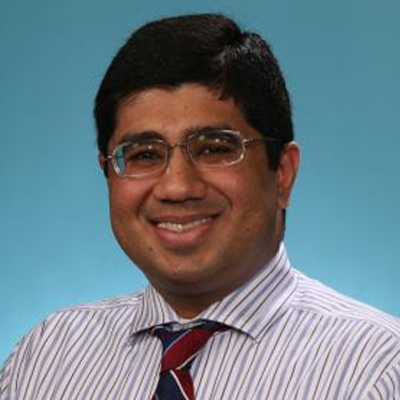
Hrishikesh Kulkarni, MD, MSCI
I moved from India to the United States after completing medical school with the goal of mitigating acute respiratory distress syndrome (ARDS) by identifying novel targets through a better understanding of lung immunopathology. After training in TLR2-mediated endothelial dysfunction at UCSF with Prof. Judith Hellman, I completed my residency in Internal Medicine at the University of Pittsburgh, following which I moved to the Washington University School of Medicine (WUSM) for a fellowship in Pulmonary and Critical Care Medicine. I first completed a clinical fellowship following which I pursued postdoctoral training at the intersection of innate immunity and cell biology and completed a Masters of Science in Clinical Investigation at the same time.
Given that complement is a fundamental component of the innate immune system and much remains to be understood about its local production in the lung and regulation in the context of pulmonary barrier function, I focused my postdoctoral training on its role in the airway epithelium under the mentorship of Dr. John Atkinson, an internationally recognized expert in complement biology. During this time, we systematically investigated and described previously underappreciated intracellular complement stores in the airway epithelium, focusing on C3.
After completing my postdoctoral training in 2018, I established my lab at Washington University with the overarching goal to improve patient outcomes through an understanding of how complement modulates the host response to injury. I have been intentional about building a group that develops interest in research for students and those from under-represented groups. Using the support provided by the NIH, private foundations, and institutional funding, we have established in vitro and in vivo models to dissect tissue-specific sources of complement proteins that can be harnessed as therapeutics to mitigate acute lung injury (ALI). Specifically, we have leveraged human explant tissue, reporter mice, conditional knockout mice, and CRISPR-mediated deletion in cells along with live-cell imaging to investigate how complement produced by cells affect survival. We have collaborated across departments and institutions to study different etiologies of ALI, as well as utilized core facilities for flow cytometry, imaging and next-generation sequencing. We have also leveraged human specimens to investigate complement activation in acute respiratory distress syndrome (ARDS) as a part of multicenter collaborations. Throughout this time, I have been committed to mentoring, first, as the Associate Program Director for Research of our Pulmonary and Critical Care fellowship program, and subsequently, as one of the MPIs of the Divisional T32 training grant titled “Principles of Pulmonary Research”.
With this background and expertise, we moved our laboratory to the University of California-Los Angeles in late 2024 to bring together complementary expertise focused on reducing lung injury at the intersection of clinical medicine, immunology, cell biology and bioinformatics. Through our efforts, we will systematically investigate how mucosal immune responses can be harnessed to reduce lung injury in different scenarios with the goal of improving patient outcomes.